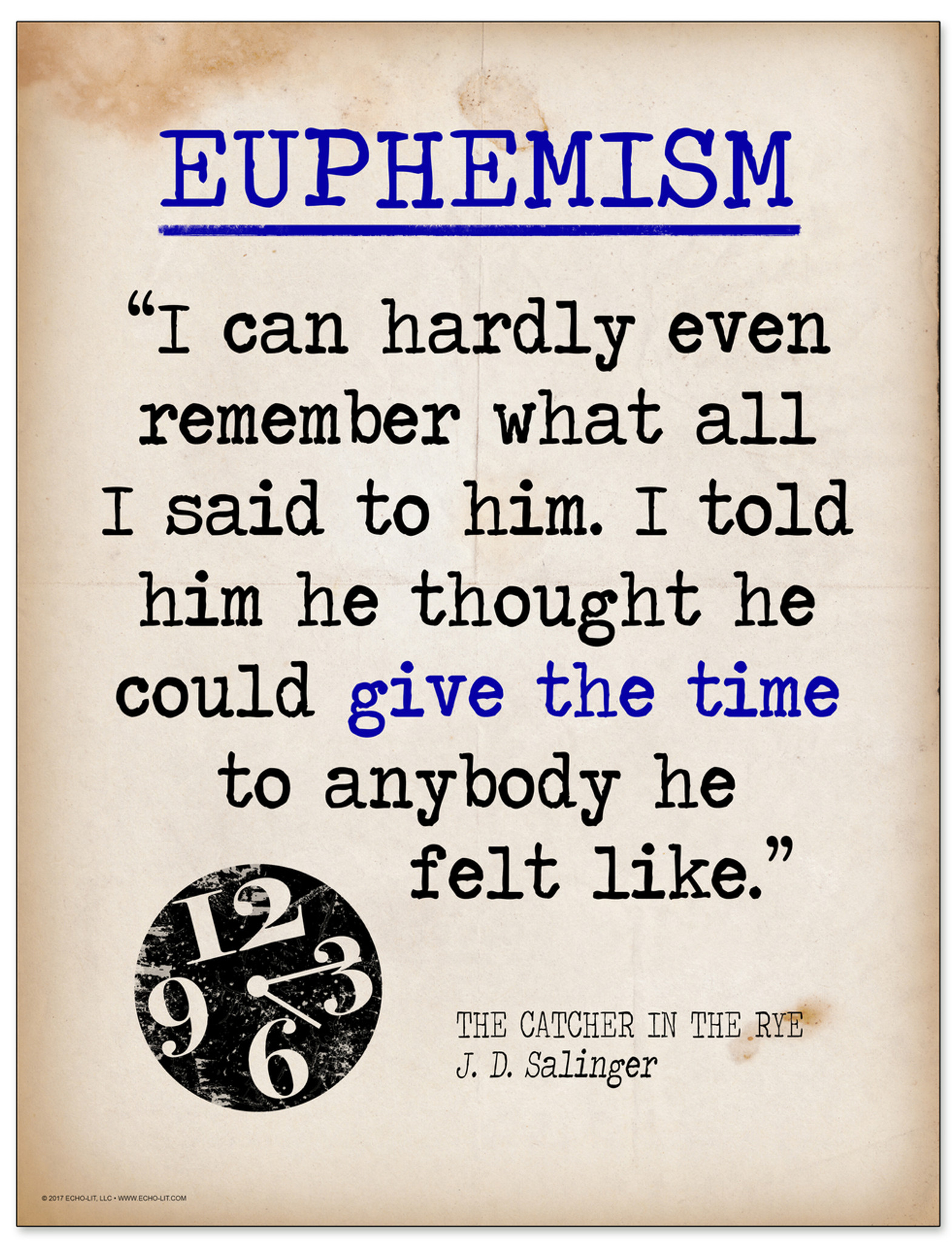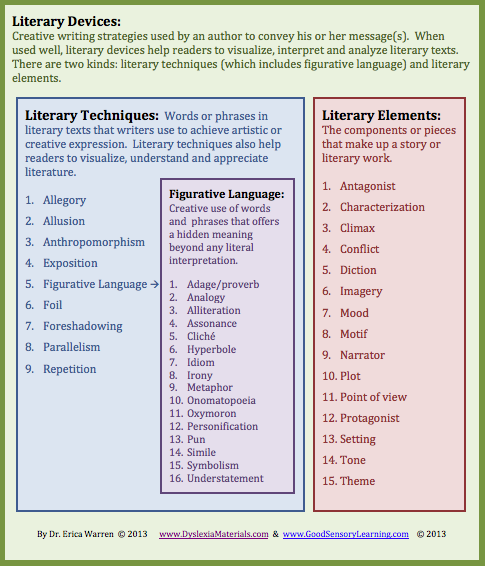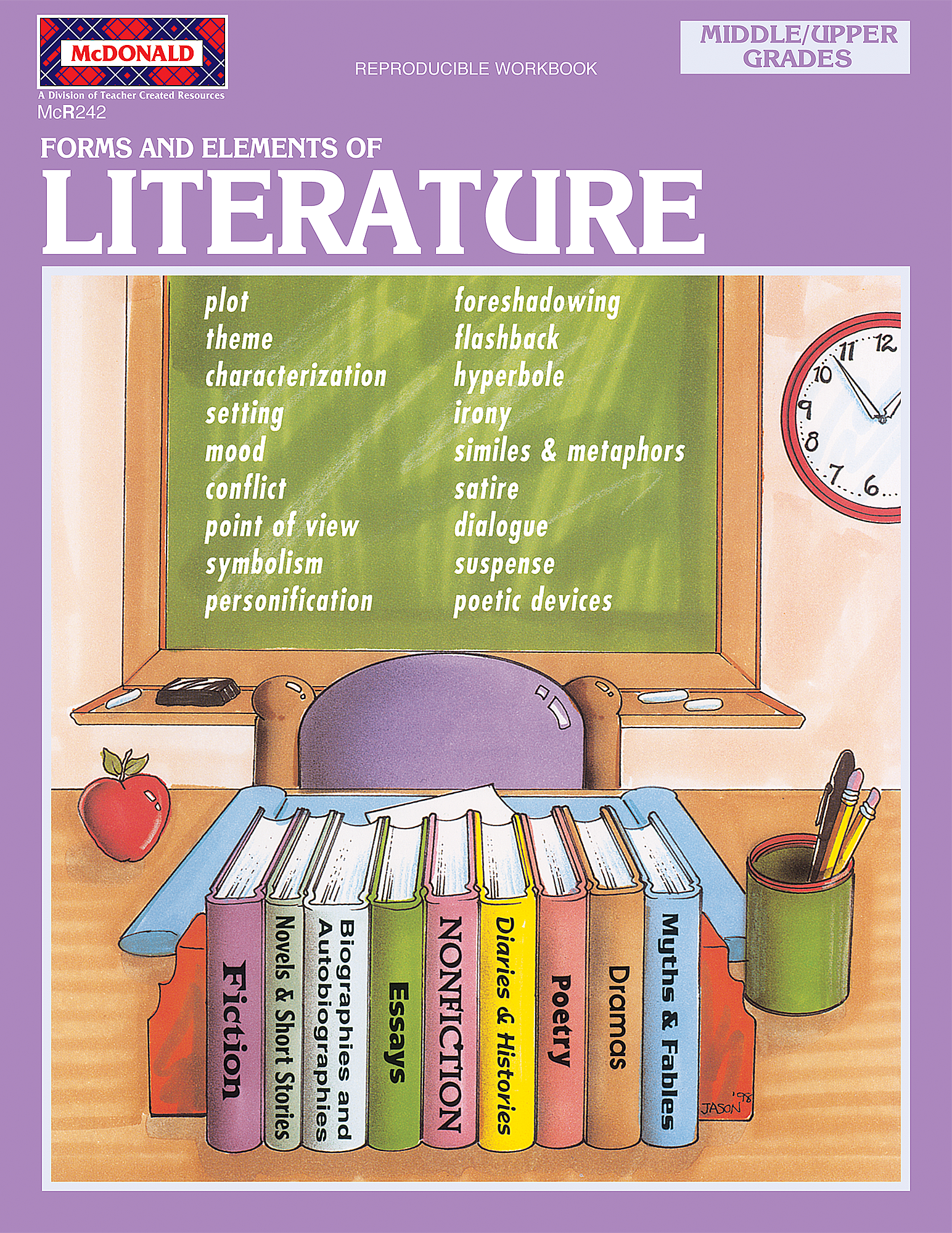

For the most part, they are popular concepts that are not limited to any particular branch of literary criticism, although they are most closely associated with the formalist method of professional literary criticism. Literary elements aid in the discussion and understanding of a work of literature as basic categories of critical analysis literary elements could be said to be produced by the readers of a work just as much as they are produced by its author. For example, plot, theme, and tone are literary elements, whereas figurative language, irony, or foreshadowing would be considered literary techniques. This distinguishes them from literary techniques, or non-universal features of literature that accompany the construction of a particular work rather the necessary characteristics of all narrative. Read more about Drama.Freebase (2.53 / 17 votes) Rate this definition:Ī literary element is an inherent constituent of all works of narrative fiction-a necessary feature of verbal storytelling that could be found in any written or spoken narrative.

The right kind of sound effects or music greatly supplements the ebb and flow of emotions in the play. Various literary elementslike metaphor, irony, or backstory can help readers better understand, feel, or see something. It also adds more power to the ideas presented in the play like a tragedy, heroism, optimism, loss, etc. Even the thoughts and desires of the characters are depicted through various musical elements and compositions. Literary Devices for Writers Your job is to create a story readers get lost in from the get-go. Instead, it is a type of argumentative essay where you need to analyze elements such as the language, perspective, and structure of the text, and explain how the author uses literary devices to create effects and convey ideas. CHARACTER This is a person, animal, or an object in fiction or drama. A literary analysis essay is not a rhetorical analysis, nor is it just a summary of the plot or a book review. It is used to enhance the experience of the audience and provide heightened sensorial stimulation for the audience. Literary Elements Handout The following are literary elements and other terms that you will be held accountable for throughout our short story unit and each novel/play unit we complete this year. confident.’’For’each’element,’write’me’one’to’three’sentencesabout’awork’of’literature’you’ have’readthat’employs’that’element’or’techniquein’an’interestingor’significant’way. It creates patterns and rhythm of those patterns. In literature, there are many different elements that allow an author to shape the reading experience so that they can appeal to the reader more. The author might come right out and state the. But what do these really mean Setting is the time and place of the story. You have probably heard of these literary elements: setting, plot, characterization, conflict, point of view, theme, and tone. Though not indispensable in a drama, music provides sounds to the action in the drama. Teachers use them as starting points for analyzing and discussing the literature students read. It provides the cadence to the dialogues and adds an element of the theatrical presentation. Example: “ To be, or not to be“, a soliloquy from Hamlet. They are not used intentionally by writers, but they merely take place in. Auden is able to incorporate the usage of personification, metaphors, and imagery effectively to help the reader feel the overwhelming grief the speaker is experiencing. Monologues and soliloquies help are speeches that incorporate information difficult to be extracted through dialogues. Literary elements are commonly described as the components of a literary piece. Literary Elements Used in Stop All the Clocks, Cut Off the Telephone In the poem Stop All the Clocks, Cut off the Telephone, W.H. The setting of a story is the time and/ or place the story occurs. An example of a literary element is the setting. The elements are intrinsic parts of literature, not something an author simply decides to utilize. Each playwright can create their own specific style in relationship to language choices they use in establishing character and dialogue. What Are Literary Elements Literary elements are characteristics common to both oral and written stories. Learn the literary elements of short stories through the classic Cinderella. Language and dialogues delivered by the characters move the plot and action along, provides exposition, and defines the distinct characters. A short story is a short piece of fiction. When Oliver goes to London, he innocently falls in with a. The dialogues are the lines that the characters speak and often represent their feelings and emotions. Young Oliver Twist, an orphan, spends his first nine years in a 'baby farm,' a workhouse for children in which only the hardiest survive.

The word choices made by the playwright and the enunciation of the actors of the language.


 0 kommentar(er)
0 kommentar(er)
